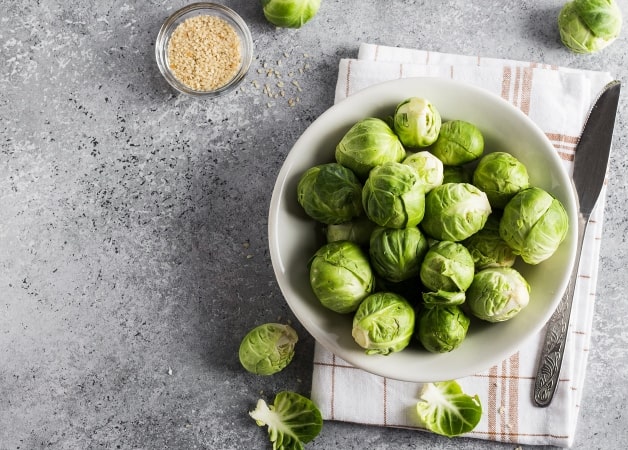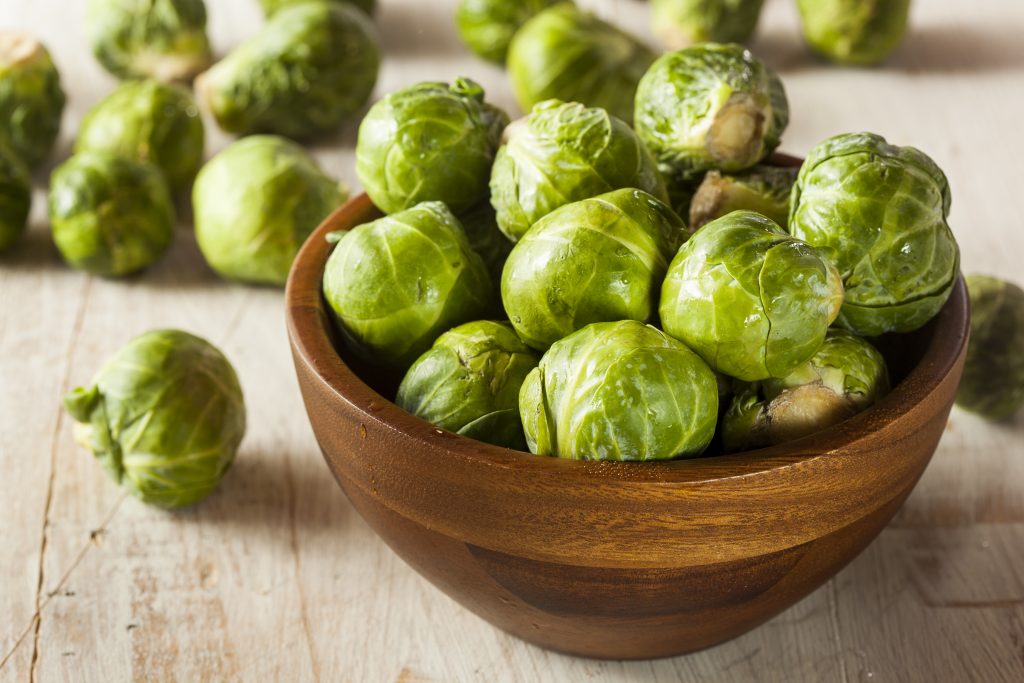When it comes to cruciferous vegetables, Brussels sprouts often divide opinions at the dinner table. But love them or hate them, there’s no denying their impressive nutritional profile. These miniature cabbages pack a punch when it comes to vitamins, minerals, and antioxidants — making them a worthy addition to your plate.
In this post, we’ll explore the properties and health benefits of Brussels sprouts, along with tips on how to enjoy them at their best.
🥦 What Are Brussels Sprouts?
Brussels sprouts are part of the cruciferous vegetable family, related to broccoli, cauliflower, and kale. They grow in clusters on a thick stalk and resemble small, tightly packed cabbages. While they have a slightly bitter flavor when raw or overcooked, proper preparation brings out their natural sweetness and nuttiness.
🌱 Nutritional Properties
Brussels sprouts are low in calories but incredibly rich in nutrients. A 100g serving contains:
- Calories: ~43 kcal
- Fiber: 3.8g
- Vitamin C: 85 mg (over 100% of the daily recommended intake)
- Vitamin K: 177 mcg (around 150% of the daily requirement)
- Folate, Vitamin A, and B vitamins
- Minerals: Potassium, Manganese, Iron
They’re also high in glucosinolates, sulfur-containing compounds known for their antioxidant and anticancer properties.
💪 Health Benefits of Brussels Sprouts
1. Support Immune Function
Thanks to their high vitamin C content, Brussels sprouts help strengthen the immune system, fight off infections, and reduce inflammation.
2. Protect Against Chronic Diseases
Rich in antioxidants like kaempferol, Brussels sprouts may help reduce oxidative stress and lower the risk of chronic diseases, including heart disease and certain types of cancer.
3. Aid in Detoxification
The glucosinolates and fiber in Brussels sprouts support liver function and help the body eliminate toxins more efficiently.
4. Boost Bone Health
With a high dose of vitamin K, these veggies play a critical role in bone mineralization and may help prevent osteoporosis.
5. Support Heart Health
Brussels sprouts contain compounds that help reduce LDL (bad) cholesterol levels, improve blood vessel function, and regulate blood pressure.
6. Aid in Digestion
The fiber content promotes healthy digestion, prevents constipation, and supports gut health.
🍽️ How to Enjoy Brussels Sprouts
If your childhood memories of soggy, boiled Brussels sprouts haunt you, it’s time to give them another chance. Try these delicious and healthy methods:
- Roasted with olive oil and garlic
- Sautéed with onions and balsamic glaze
- Shaved raw into salads
- Grilled or air-fried for a crispy treat
- Tossed with nuts, cranberries, or parmesan
Tip: Avoid overcooking, as this can increase bitterness and reduce nutrient levels.
⚠️ Any Side Effects?
Brussels sprouts are generally safe for most people. However:
- Due to their vitamin K content, individuals on blood-thinning medication (like warfarin) should moderate their intake.
- Being high in fiber, they may cause gas or bloating if consumed in large quantities.

Brussels sprouts are a nutritional powerhouse that can be a delicious and versatile part of your diet. Whether you roast them, sauté them, or shred them into a salad, their health benefits far outweigh their bitter reputation.
So next time you’re grocery shopping, don’t skip the sprouts — your body will thank you! 🌿

